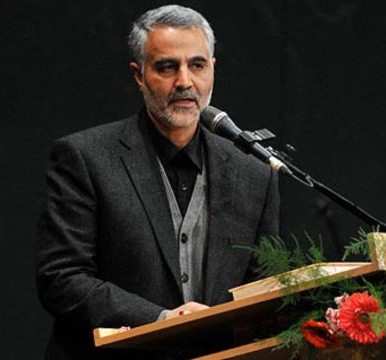Iran spreads its war wings: Hizballah deepens role in Syria. Israel, Syria, Lebanon “regions of conflict”
In a fundamental policy makeover, the Iranian Revolutionary Guards Corps (IRGC) high command has resolved to deepen the Lebanese Hizballah’s intervention in the Syrian civil war, with wide repercussions on the stability of Lebanon and the Syrian and Lebanese borders with Israel. Gen. Qassem Soleimani, commander of the IRGC’s terrorist and intelligence arm, the Al Qods Brigades, was appointed to execute this policy of expanded regional intervention.
debkafile’s military and intelligence sources report that it embodies the latest decision by Supreme Leader Ayatollah Ali Khamenei to strictly separate Tehran’s approach to international nuclear diplomacy opposite the US from its intervention in regional conflicts – Syria, Lebanon and the Palestinians – and direct confrontation with Israel.
Henceforth, Iran’s tactics in nuclear diplomacy for the relief of sanctions, and in the negotiations resuming in Geneva, Monday, Feb. 10 for ending the Syria war, will be sealed off in a separate policy compartment from the Islamic Republic’s pursuit of its regional goals in the “war arenas” of Syria, Lebanon and Israel.
Syrian President Bashar Assad and Hizballah leader Hassan Nasrallah were notified of this change last week. It first surfaced in a call to arms by Hizballah’s second in command Sheikh Naim Qassem, which is reported to have drawn 5,000 new Shiite volunteers in its first push.
The new intake will receive military training in crash courses for missions in Lebanon and a higher level of combat instruction for the Syrian battlefield.
Qassem announced in a pep speech in Beirut: "We will continue our work and remain in the field committed to our political stances. We will remain fighting where we are fighting. We are a resistance wherever we are: a resistance against Israel and its agents and a resistance fighting in Syria in defense of the resistance.”
His meaning was clear. The organization would continue fighting in Syria while buttressing its positions in Lebanon and persevering in its “resistance against Israel and its agents.”
That speech was also meant to raise the morale of Lebanon’s 3 million Shiites, who are down in the dumps as they facing bombing attacks by Al Qaeda-linked terrorists in reprisal for Hizballah’s military support for Bashar Assad, and see their young men (17-25) being called up for more fighting.
“Do not panic or be frightened of them or they will win,” Sheikh Qassam told them. “Our heads will remain high, as we combat the takfiris and those behind them. We will be victorious in the end…”
One outcome of Tehran’s new strategy – revealed here for the first time by debkafile’s intelligence sources – is that the formula Iranian Foreign Minister Javad Zerif worked on during his Beirut visit in mid-January, to resolve Lebanon’s chaotic political scene, has gone by the board. He managed to bring Lebanon’s quarreling factions to agree on a national unity government with nine portfolios allotted to the Hizballah bloc, nine the opposition and six chosen by President Michel Suleiman.
Hizballah was ordered by the hardline al Qods commander to revoke this deal.
Khamenei’s step to appease his hard-line factions has therefore dashed the hopes of President Barack Obama and Secretary of State John Kerry that nuclear diplomacy with Iran and sanctions relief would have a positive and stabilizing effect on other parts of the region. President Hassan Rouhani’s tactics for getting sanctions eased will not be allowed to interfere with Iran’s ambitions to foment discord and expand its grip on the rest of the region.


